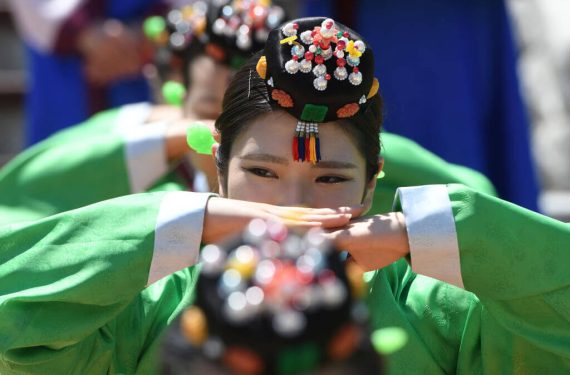South Korea has become a soft power giant with the effective promotion of its national image and culture worldwide. The country has already proved itself by producing high-quality electronic devices and with its automobile industry. The South Korean movie Parasite was the first non-English language movie to win Best Picture at the Academy Awards in February 2020.
There is a term for this new trend: Hallyu, meaning the “Korean Wave,” describing the quick transfer of South Korean popular culture to the rest of the world. The Korean influence ranges from K-pop to television programs, drama series, and various sorts of digital content.
The Middle East region is not an exception to this wave of Korean cultural influence. Korean dramas, music, and movies are received well in the Middle East. One reason behind Korean culture’s quick penetration in the region is the overlapping cultural sensitivities related to social and moral values such as the place of family in the narratives and the lack of nudity – nudity is more common in European and North American productions. According to Spotify, Saudi Arabia, the UAE, Egypt, Morocco, and Algeria were the top five streamers of K-pop between 2014 and 2020.

VIDEO: South Korea: The Silent Cultural Superpower
The Korea-Arab Society (KAS) is a foundation established and funded by Korean and Arab governments to boost reciprocal cooperation in several areas such as arts, sports, culture, and economy. Korean Cultural Centers (KCC) were opened in Ankara, Cairo, and Abu Dhabi in 2011, 2014, and 2018 respectively.
On the 60th anniversary of South Korea and Turkey diplomatic relations in 2017, Turkey released the movie Ayla, based on a true story that took place during the Korean War. South Koreans call Turks “Blood Brothers.” The Department of Korean Language and Literature at Ankara University was established in 1989, and was the first department for Korean studies in Turkey.
Korean Economic Ties to the Middle East
Korean influence in the Middle East is equally vital as in the field of the economy. Gulf countries import large amounts of Korean products, while, in return, South Korea imports Middle Eastern oil and natural gas. Saudi Arabia and the United Arab Emirates are the two chief trading partners of South Korea in the region.
In October 2017, the Kingdom of Saudi Arabia and the Republic of Korea signed a memorandum of understanding (MoU) entitled “Saudi-Korean Vision 2030” to foster strategic partnership. In 2018, a cooperation pact of $8.3 billion was signed in Seoul by Saudi Crown Prince Mohammed bin Salman and Korean President Moon Jae-in. Moon stated, “Saudi Arabia is the largest oil supplier for us, and it’s the biggest customer for South Korean construction firms. It is also our number one trade partner in the Middle East.”
Similarly, the UAE and South Korea have strategic partnership relations in several areas such as education, energy, and agriculture. In 2019, an MoU was signed between the UAE’s Barakah One Company and South Korea’s Korea Electric Power Corporation (KEPCO) to improve cooperation on nuclear energy. Recently, in March 2021, during the Industry and Energy Cooperation Forum, the UAE and South Korea signed another MoU for collaboration in hydrogen economy, digital innovation, and transformation.
In August 2012, Turkey and South Korea signed a free trade agreement (FTA) establishing a free trade area, followed by two other agreements on trade and investment in 2015. Turkish President Recep Tayyip Erdoğan paid a visit to South Korea in 2018 and met Korean President Moon Jae-in to further the cooperation on international affairs such as the refugee crisis, fighting terrorism, world peace, and security.
Recommended
South Korea has always been politically neutral in the Middle East and North Africa (MENA). The country has shown sensitivity towards its relationship with Israel and has kept a balance so as not to risk losing its major trade partners in the Gulf. South Korea has maintained limited military involvement in MENA with some exceptions such as the first Gulf War (1990-91). In 2003, Seoul sent troops during the invasion of Iraq but kept its forces in non-combat zones. In 2006, South Korea sent 356 soldiers to Southern Lebanon as part of the United Nations Interim Force (UNIFIL).
A win-win situation characterizes the Korean-Middle East relationship. South Korea can continue exporting high-tech products to the Middle East and benefit from bilateral agreements in other fields such as education and social reforms. Yet, the country may also face the risk of being part of the U.S. military engagements in the region, given its strong alliance and partnership with the U.S. However, South Korea is not on this track. The cultural impact of Korean arts and movies has helped the country earn a worldwide reputation especially among younger generations who are more eager to follow Korean influencers and public figures online.





